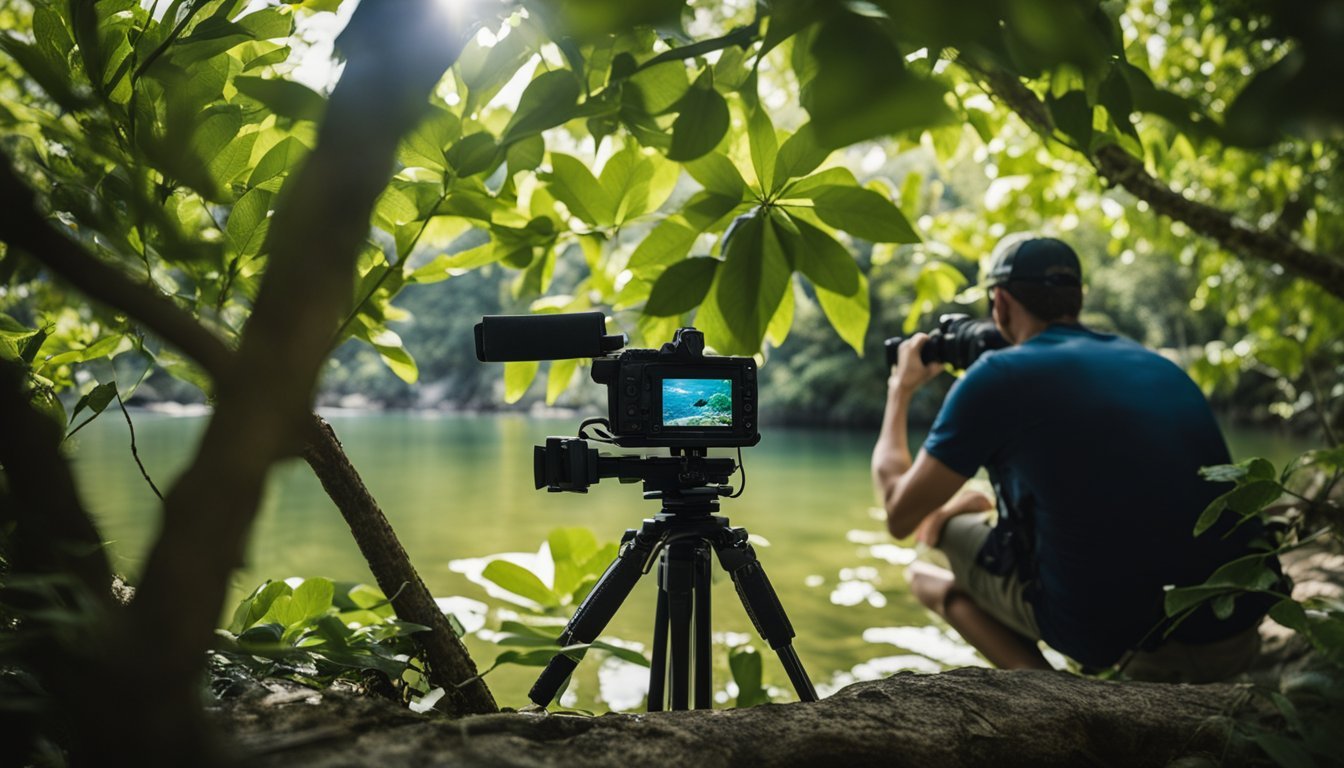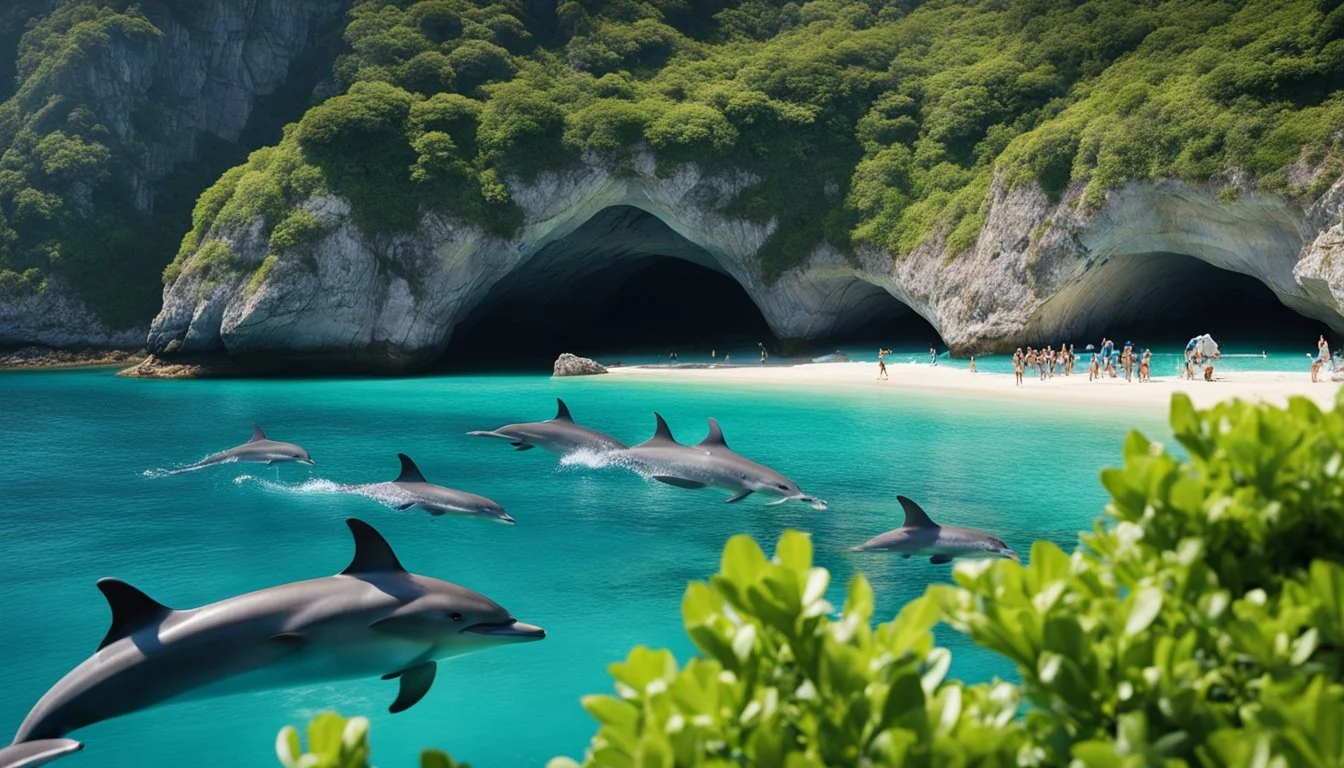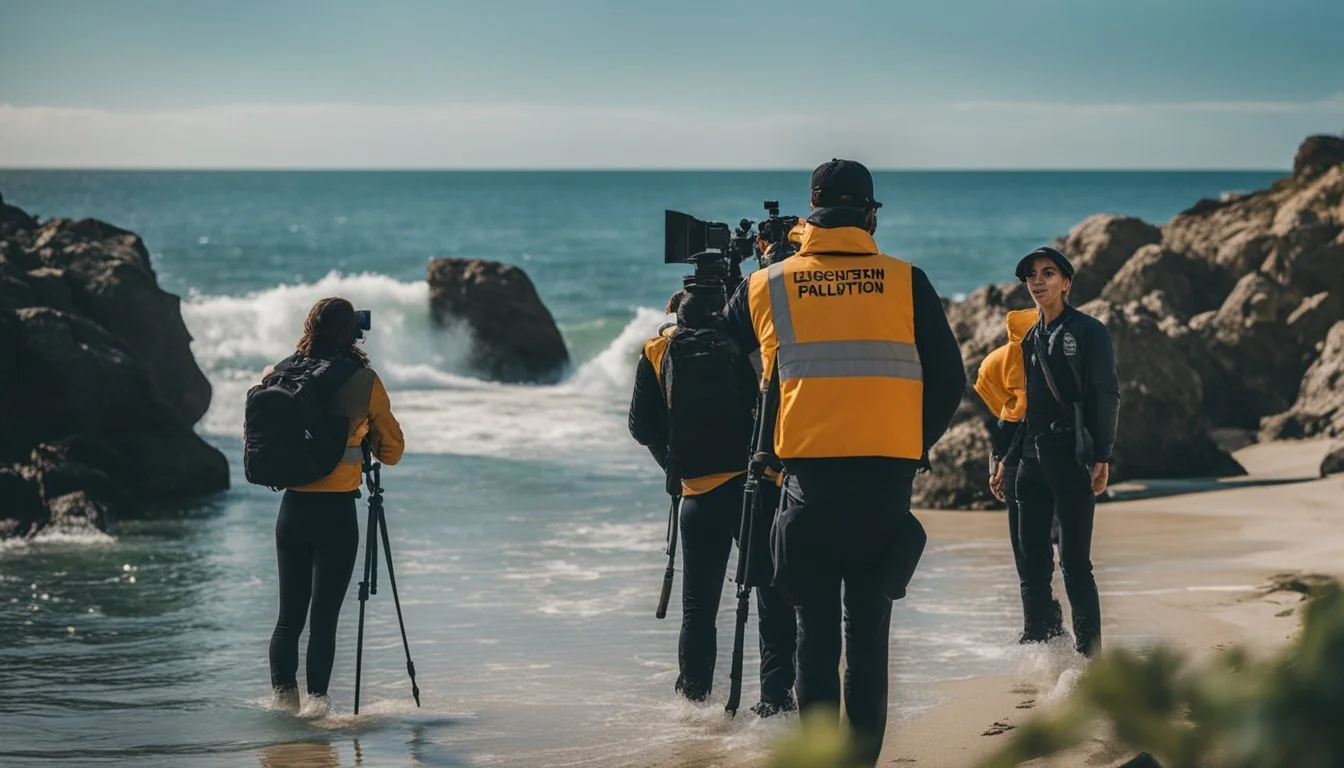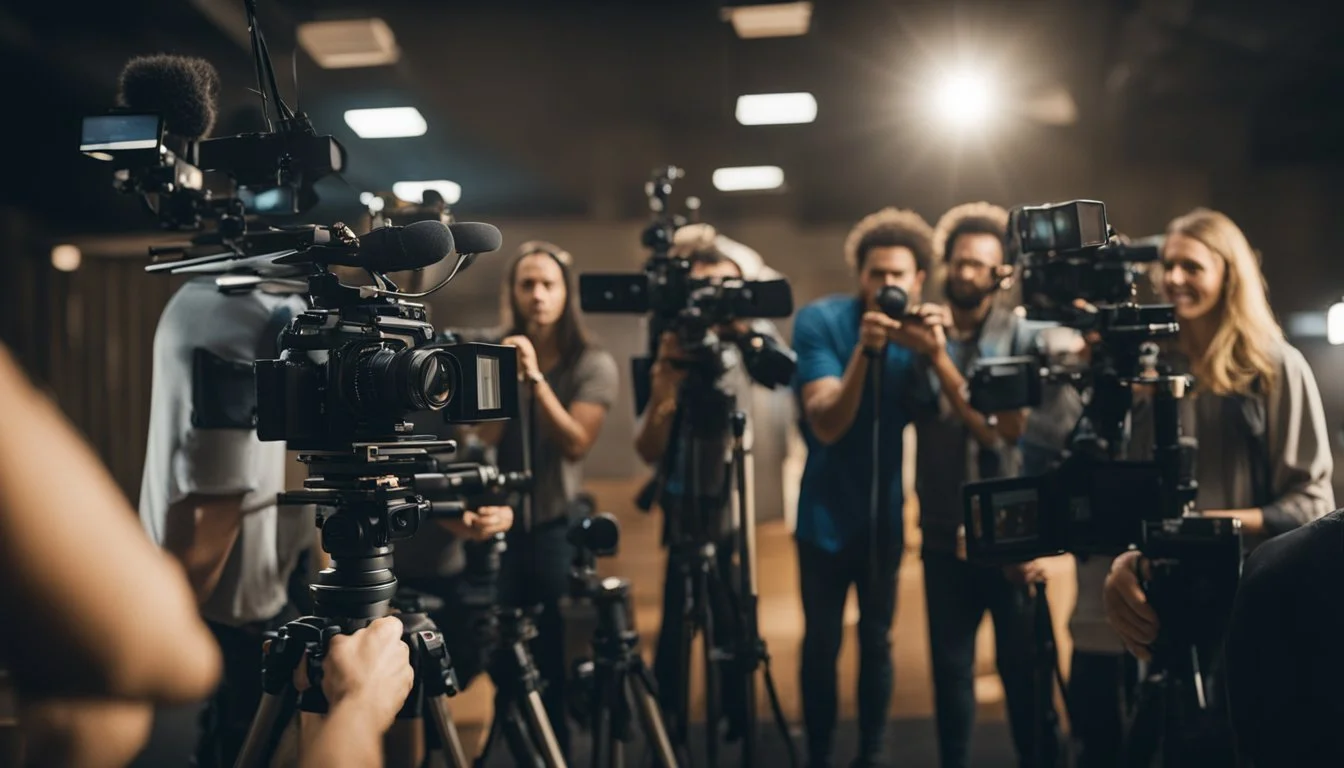The Cove's Daring Undercover Tactics Challenged Documentary Norms
"The Cove" pushed the boundaries of documentary filmmaking through its daring undercover approach. Director Louie Psihoyos and his team employed covert tactics to expose the hidden dolphin slaughter in Taiji, Japan. Their clandestine methods, including hidden cameras and nighttime infiltrations, created a gripping cinematic experience while raising serious legal and ethical questions.
The production faced numerous risks during its three-year journey. Psihoyos and his crew operated in a legal gray area, potentially violating local laws to capture footage of the secretive dolphin hunt. They used specialized equipment like high-definition thermal cameras and underwater microphones to document activities the Japanese authorities wanted to keep hidden from public view.
The film's dangerous production led to a powerful expose that sparked international outrage over the treatment of dolphins. By blending activist passion with cutting-edge technology, "The Cove" demonstrated the impact documentary filmmakers can have when they're willing to take bold risks to uncover hidden truths. Its success raised important discussions about the lengths journalists and filmmakers should go to expose wrongdoing.
The Genesis of 'The Cove'
'The Cove' emerged from a collision of activism and filmmaking, driven by a desire to expose the dolphin hunting practices in Taiji, Japan. The project brought together a diverse team of experts and activists committed to documenting this controversial issue.
Origins and Objectives
The idea for 'The Cove' sparked when former dolphin trainer Ric O'Barry met filmmaker Louie Psihoyos. O'Barry, who trained dolphins for the TV show "Flipper," had become a vocal activist against dolphin captivity. Psihoyos, a National Geographic photographer, was moved by O'Barry's passion and decided to document the dolphin hunts in Taiji.
The film's primary objective was to reveal the annual dolphin drive hunt to a global audience. This practice, hidden from public view, involved the capture and slaughter of dolphins for meat and aquarium sales. The filmmakers aimed to create awareness and inspire change through their documentary.
Securing the Team
Assembling the right team was crucial for the challenging and covert nature of the project. Louie Psihoyos, as director, brought his visual expertise and storytelling skills. Ric O'Barry provided insider knowledge of the dolphin industry and acted as the film's central figure.
Producer Fisher Stevens joined the project, bringing filmmaking experience and industry connections. Paula Dupré Pesmen came on board as a producer, contributing her skills in documentary production. The team also included skilled freedivers, activists, and technicians essential for the covert filming operations.
Each team member was chosen for their specific expertise and commitment to the cause. This diverse group formed a "Ocean's Eleven"-style team, ready to tackle the complex logistics and potential dangers of filming in Taiji.
Undercover Operations
Covert filming for "The Cove" involved intricate planning and high-stakes execution. The team employed specialized techniques while navigating significant legal and personal risks.
Strategic Filming Techniques
The filmmakers used innovative methods to capture footage in Taiji. They deployed fake rocks with hidden cameras to blend into the environment. These artificial props allowed for undetected recording in restricted areas.
National Geographic photographer Louie Psihoyos led the team, bringing expertise in discreet image capture. They conducted 14 separate covert missions into the protected cove. Each operation required meticulous coordination and timing.
A dedicated runner transported the film out of town daily. This crucial step ensured the safety of their gathered evidence. The team's approach mirrored investigative journalism tactics, prioritizing stealth and persistence.
Confronting the Risks
The production team faced constant danger from discovery. Japanese police vigilantly patrolled the area, increasing the stakes of each filming attempt.
Legal consequences loomed large. Unauthorized access and recording carried severe penalties. The crew risked arrest, fines, and potential imprisonment if caught.
Personal safety was also a major concern. Confrontations with local authorities or dolphin hunters could turn violent. The filmmakers had to balance their mission against very real physical threats.
Despite these challenges, the team pressed on. Their commitment to exposing the truth outweighed the considerable risks they faced daily in Taiji.
Legal Challenges and Ethical Dilemmas
The production of "The Cove" faced significant legal and moral hurdles. The filmmakers grappled with Japanese laws while employing covert tactics to expose dolphin hunting practices.
Navigating Japanese Laws
The filmmakers risked criminal charges under Japanese law. Trespassing and unauthorized filming in restricted areas carried potential fines and imprisonment. The Japanese government closely monitored the crew's activities, increasing the risk of arrest and equipment seizure.
To avoid detection, the team used hidden cameras and posed as tourists. This strategy helped them gather crucial footage but heightened legal jeopardy. If caught, they faced deportation and bans on future entry to Japan.
The documentary's release prompted legal threats from Japanese officials. They claimed the film violated privacy rights and defamation laws. This put distributors and theaters at risk of lawsuits.
The Morality of Covert Filming
Covert filming raises ethical questions about consent and privacy. The filmmakers didn't obtain permission from their subjects, sparking debate on journalistic integrity.
Supporters argue the ends justified the means. They claim exposing animal cruelty outweighed privacy concerns. Critics contend the tactics were too intrusive and violated ethical standards.
The film's impact on local communities also sparked controversy. Some felt the portrayal was one-sided and damaging to their reputation. This highlighted the tension between truth-telling and cultural sensitivity in documentary filmmaking.
Balancing public interest with individual rights remains a key ethical challenge in investigative documentaries.
Cultural and Environmental Impact
"The Cove" sparked intense debates about dolphin hunting practices and marine conservation. Its release brought global attention to a localized issue, leading to diplomatic tensions and changes in public perception.
The Taiji Dolphin Hunt
The film exposed the annual dolphin hunt in Taiji, Japan to a worldwide audience. This centuries-old practice involves herding dolphins into a cove and selecting some for captivity in marine parks, while killing others for meat. The graphic footage of the slaughter shocked viewers and raised ethical questions about the treatment of cetaceans.
Defenders of the hunt cite cultural tradition and economic necessity. Critics argue it's inhumane and unsustainable. The International Whaling Commission doesn't regulate dolphin hunts, leaving the practice in a legal gray area.
Global Repercussions
"The Cove" galvanized the environmental movement and Western perspectives on marine mammal conservation. It led to increased scrutiny of dolphinariums and the captive dolphin trade. Some countries banned dolphin meat imports in response.
The film strained Japan's diplomatic relations with other nations. It faced backlash from Japanese officials who viewed it as cultural imperialism. Taiji residents reported harassment from foreign activists.
Conservation groups like Greenpeace gained support for their anti-whaling campaigns. The film's impact extended beyond Taiji, influencing broader discussions on sustainable fishing practices and ocean ecosystem preservation.
Public Reaction and Activism
"The Cove" sparked widespread public outrage and galvanized animal rights activists worldwide. The film's shocking revelations about dolphin hunting practices in Taiji, Japan led to increased scrutiny of marine mammal captivity and a surge in grassroots advocacy efforts.
Raising Awareness
The documentary's graphic footage of dolphin slaughter shocked viewers and went viral on social media. This exposure brought the issue to the forefront of public consciousness. Animal welfare organizations leveraged the film's popularity to launch campaigns against dolphin captivity and hunting.
The Dolphin Project saw a significant uptick in supporters and volunteers after the film's release. Many viewers were moved to take action, signing petitions and boycotting marine mammal parks. Public pressure mounted on facilities that sourced dolphins from drive hunts.
Advocacy and Education
"The Cove" became a powerful educational tool for activists and educators. Schools and universities incorporated the film into curricula, sparking discussions on marine conservation and animal ethics. Advocacy groups organized screenings and Q&A sessions to inform the public about dolphin captivity issues.
The film's impact extended beyond awareness, leading to concrete policy changes. Some countries strengthened regulations on marine mammal imports. Several travel companies stopped promoting dolphin shows. Activists used the momentum to push for stricter oversight of the captivity industry and increased protections for cetaceans in the wild.
Achievements in Film
"The Cove" garnered significant recognition for its powerful storytelling and impact on audiences worldwide. The film's success extended beyond its critical reception to influence public awareness and policy discussions.
Critical Acclaim
"The Cove" received widespread acclaim from critics and industry professionals. The documentary won the Academy Award for Best Documentary Feature in 2010, solidifying its place in cinematic history. This Oscar win brought international attention to the film's message.
At the Sundance Film Festival, "The Cove" won the Audience Award for U.S. Documentary. It also received accolades at the Newport Beach Film Festival. These festival successes helped build momentum for the film's theatrical release and subsequent awards campaign.
Critics praised the documentary for its investigative approach and emotional resonance. Many reviewers highlighted the film's ability to balance factual information with compelling storytelling.
Influential Storytelling
"The Cove" demonstrated the power of documentary filmmaking to spark global conversations. The film's exposé of dolphin hunting practices in Japan reached audiences far beyond traditional environmental circles.
Its narrative techniques, combining undercover footage with expert interviews, set a new standard for investigative documentaries. The film's dramatic score and cinematography enhanced its emotional impact on viewers.
"The Cove" inspired increased scrutiny of marine mammal captivity and hunting practices. Its influence extended to policymakers, leading to discussions about international marine conservation efforts.
The documentary's success paved the way for future environmental films, showing how cinema can be a tool for advocacy and education.
Health Concerns and Mercury Contamination
Mercury contamination in dolphin meat poses significant health risks to consumers. This toxic element accumulates in marine food chains and can cause severe neurological damage, especially in children and developing fetuses.
The Threat of Mercury Poisoning
Mercury poisoning from consuming dolphin meat can lead to severe health issues. Symptoms include:
Impaired neurological development
Cognitive deficits
Motor skill problems
Vision and hearing loss
Children and pregnant women face the highest risk. Mercury easily crosses the placental barrier and can harm fetal brain development. Long-term exposure may result in permanent neurological damage.
Dolphin meat often contains mercury levels far exceeding safe limits set by health organizations. Regular consumption significantly increases the risk of mercury toxicity.
Impact on Local Communities
In Taiji and other whaling towns, dolphin meat has been a traditional food source. However, many residents are unaware of the health risks. Local markets and schools sometimes serve dolphin meat, unknowingly exposing children to dangerous levels of mercury.
Changing dietary customs poses cultural challenges. Some communities resist warnings about contamination, viewing dolphin consumption as part of their heritage. This complicates public health efforts to reduce mercury exposure.
Dolphinariums selling dolphin meat as a byproduct of their operations contribute to the problem. They often downplay health concerns to maintain profits. Educating the public about mercury risks is crucial for protecting community health.
The Film's Legacy and Continuing Influence
"The Cove" sparked global awareness about dolphin hunting and captivity issues. Its impact led to significant changes in public perception and policy.
Cultural Shift and Policy Change
The documentary ignited widespread outrage over dolphin hunting practices in Taiji, Japan. Public pressure prompted several marine parks to reconsider their dolphin acquisition policies. Some facilities stopped obtaining dolphins captured in drive hunts.
International policies saw changes too. The European Association of Zoos and Aquaria banned its members from sourcing dolphins from Taiji. The film's revelations influenced legislation in various countries, with some enacting stricter regulations on marine mammal captivity.
Consumer behavior shifted as well. Increased awareness led to declining attendance at dolphin shows in some regions. This economic impact pushed some marine parks to adapt their business models.
Ongoing Advocacy and Current State
"The Cove" energized the marine conservation movement. Richard O'Barry's Dolphin Project gained momentum, continuing to monitor and report on Taiji's dolphin hunts. The Ocean Preservation Society, founded by the film's director, expanded its efforts in marine conservation.
Taiji's dolphin hunts persist, though with increased scrutiny. International pressure has led to some reductions in quotas. However, the practice remains contentious, with local authorities defending it as cultural tradition.
The film's legacy extends to broader ocean conservation efforts. It sparked discussions on sustainable fishing practices and marine ecosystem preservation. These conversations continue to shape international policy debates on ocean management.







